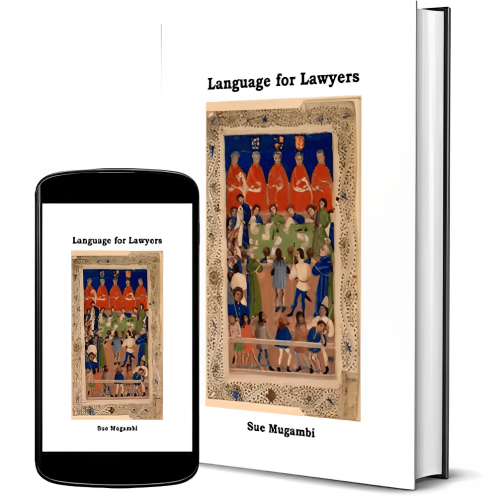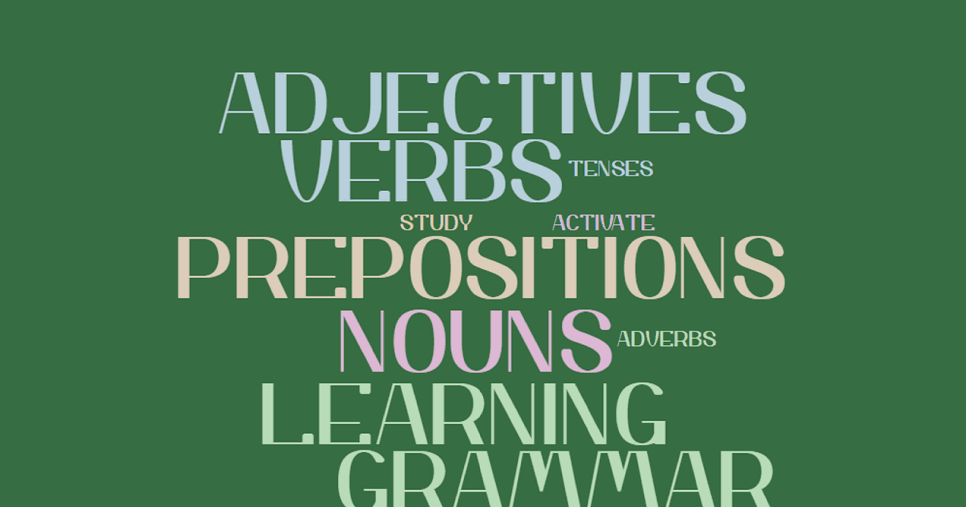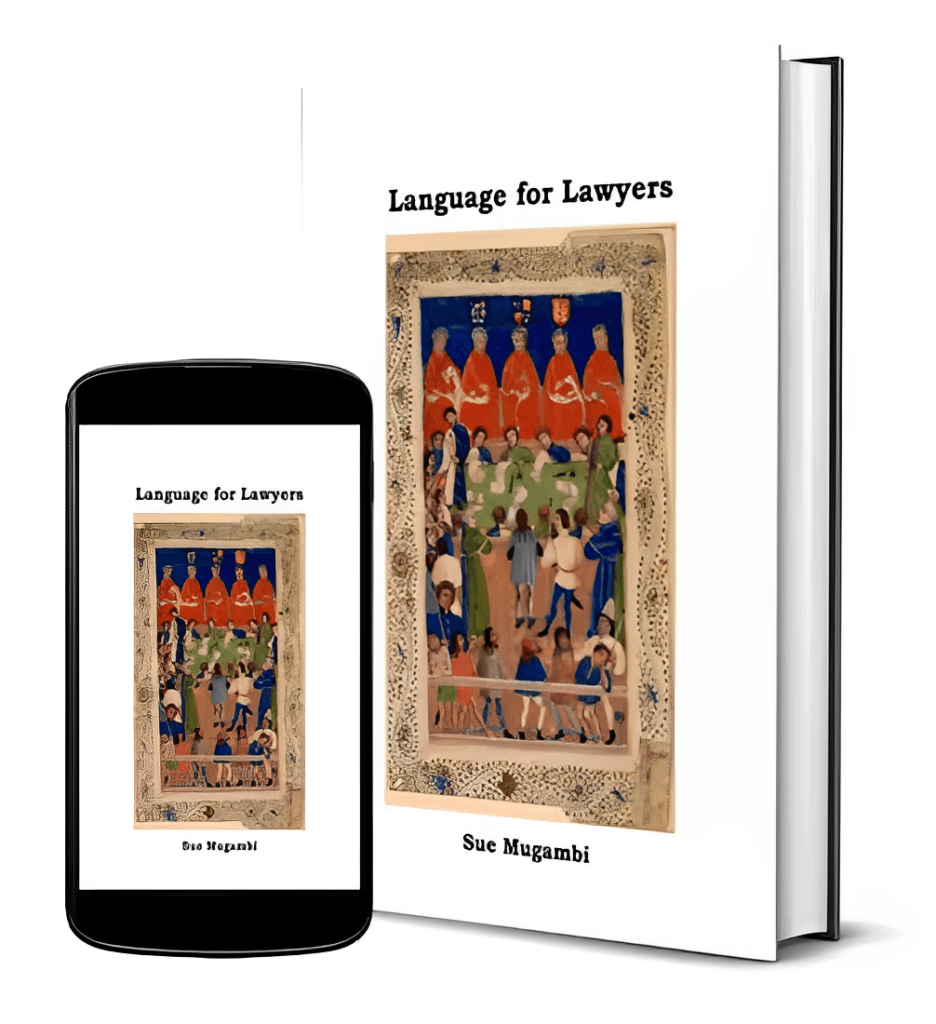
Sue Mugambi
Lawyer & Australian Author
Language for Lawyers
“This book is essential for legal professionals, law students and lay readers seeking to improve their writing and speaking skills and master the use of language.”
TOPICS
The Indo-European family of languages.
The history of English – Old English – Middle English – Modern English.
Borrowings from other languages – Scandinavian – Norman French – Latin – Greek – Arabic.
The development of the common law and the court system.
The building blocks of words – prefixes, suffixes, Latin and Greek roots.
English grammar – parts of speech: nouns, adjectives, pronouns, verbs, indefinite and relative pronouns; use of the subjective mood and active and passive voice.
Subject and verb agreement – placement of adjectives – dangling participial phrases.
Defining and non-defining clauses – spelling – punctuation.
WHY CHOOSE THIS BOOK
The profession of law relies centrally on the use of words and language.
Lawyers, of all people, should be masters of language, both spoken and written.
Law students have to read and digest voluminous texts and judgments packed with unfamiliar technical words and intricate legal argument.
They have to write assignments and exam questions and prepare correspondence and pleadings demonstrating an understanding of what they gave absorbed.
This book restates the rules of good writing.
It sheds light on the origin and meaning of legal words and Latin phrases and hence their appropriate use in context.
Knowing the origin and background of legal words and Latin phrases will assist you in understanding and applying the law.
It will give you the confidence to speak and write correctly and persuasively.
Language for Lawyers
Sheds light on the origin and meaning of legal words and Latin phrases and hence their appropriate use in context.
Language for Lawyers
Will help you choose the correct word or phrase, enabling you to construct grammatical sentences and paragraphs.
Language for Lawyers
Will give you the confidence to speak and write correctly and persuasively.
Hard copy or e-Book

Language for Lawyers
Buy hard copy for $39.99 plus postage
Special Introductory Offer
Only while stocks last
Read Our Reviews
Such a well-written book. A great resource for law students and lawyers wanting to take their language to the next level. I really enjoyed the Figures of Speech component, and the addition of graded exercises to enhance the learning outcomes is genius!
~ Jodie H.
For the lay reader as well as the law student or practitioner. Easy to read, packed with great examples and anecdotes. Comprehensive yet accessible, delightful to read.
Particularly insightful regarding the origins and meanings of legal phrases used today often without full appreciation of the rich complex history underlying these terms.
Reminds us without condescension of the rules of grammar that are now so often not taught to younger generations.
Sue has a unique grounding in both English literature and law, and skilfully draws links between the two to produce what is an excellent read.
Also provides an admirably cross cultural survey, observing linkages with Sanskrit and other languages.
~ James M.
About the Author
"Sue is a court transcriptionist with 30 years' experience in a wide range of State and federal jurisdictions."
Studied French and Latin at high school
Bachelor of Science in botany and pedology, Victoria University of Wellington
Master of Agricultural Science with honours in soil fertility, Lincoln College, University of Canterbury
NSW Justice of the Peace since 2009
Diploma in Law, LPAB/University of Sydney Law Extension Committee
Graduate Diploma of Legal Practice (PLT), College of Law
Admitted as a Lawyer of the NSW Supreme Court
Graduate Diploma in Environmental Law, University of Sydney
Master of Environmental Law, University of Sydney

Blog
Welcome to Language for Lawyers Blog Page 2025!
This blog is in three parts: Words Commonly Confused, Basic Rules of Grammar, and Figures of Speech.
Examples are taken from daily newspapers and other publications.
By following this blog you will be able to spot common mistakes in spoken and written English and gain confidence that your writing and speaking is both grammatically correct and idiomatic.

Words Commonly Confused
Circle the correct word in the following sentences:
A B
C
Cache / cachet
A cache (pronounced cash) is a hiding place or the items in a hiding place. Cachet

Basic Rules of Grammar
1. Subjects and verbs must agree in number.
The subject of a sentence is the person or thing doing the action or being described; the verb is a doing word that shows an action, an event or a state. Don’t let prepositional phrases between the subject and verb affect agreement.

Figures of Speech
The judicious use of rhetoric will lift your speech and writing to the next level and make it memorable.
Alliteration
“Whether the evidence is affected by concoction…
CONTACT US
If you have any questions or would like any further information, please contact us

